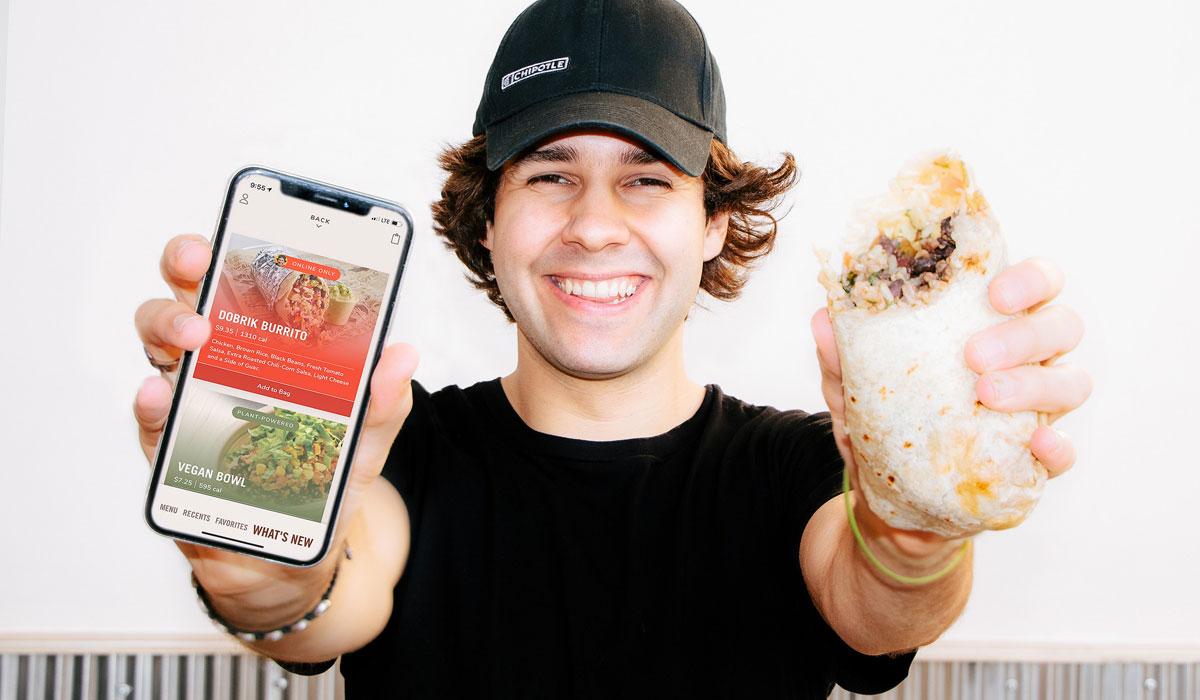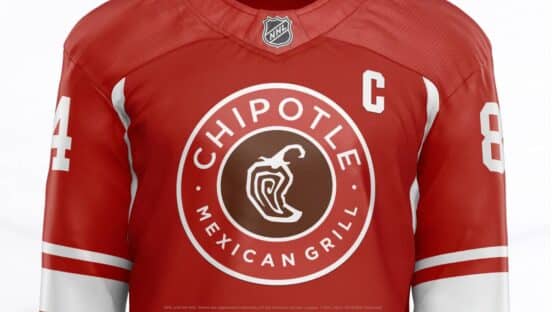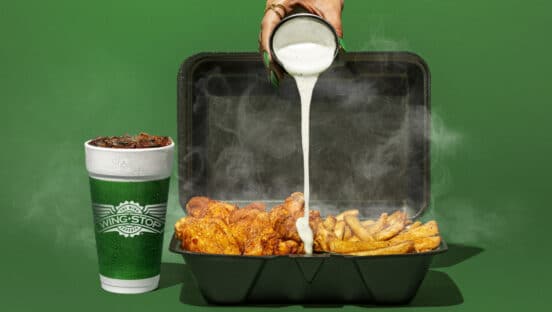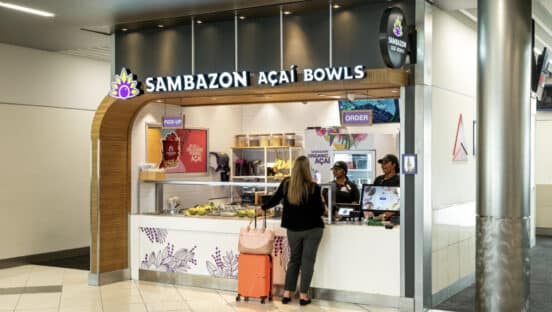As Chipotle’s rebound continues, a new question emerges: Do customers care as much about its food-safety flare-ups as investors? Here’s an anecdote from Mitchell Scott, managing partner and portfolio manager of Choice Equities Capital Management, which he shared in the company’s first-quarter investor letter.
“As for the evaluation of Chipotle’s product, in what must be either one of the more ironic legal outcomes in recent memory or simply a new low for our judicial system, one of the people who sued the company due to illness, actually settled for coupons for free food—from Chipotle!” he wrote. “It is unclear if this anecdote says more about our country’s legal system or Chipotle’s brand, but at a minimum, it seems to support the notion the product is valued.”
When news broke in late July that Chipotle closed a Powell, Ohio, restaurant on illness reports, the chain’s stock fell 6 percent and another 3.5 percent the following day. Local health officials later identified the culprit as a bacterium called Clostridium perfingens, which results from food being left at an unsafe temperature. In all, 647 people reported feeling sick after eating at the location. New CEO Brian Niccol responded to his first food-safety crisis by saying the entire 2,400-plus system was going to retrain all of its employees. The training, which includes an online knowledge assessment and begins this week, will be repeated quarterly, the company said. Might seem like a bold response to some, considering it’s one store in one market in a system of thousands, but that’s the rocky landscape Chipotle has walked since vanquishing more than half of its market cap following the 2015 14-state E. coli outbreak.
READ MORE: Chipotle to close 55–60 restaurants in revamp plan.
But here’s a less publicized fact that ran parallel to the Powell story: Chipotle closed the restaurant July 30, just one (very unfortunate) day before National Avocado Day. Did it actually matter? The bad timing seemed ineffectual. Chipotle experienced its highest recorded digital sales day in company history thanks to its free guacamole promotion, driving sales up nearly 60 percent. The brand used nearly 700,000 avocados that day alone, 200,000 more than its average. Chipotle also generated the most new app downloads in a single day. In total, the brand cooked up the biggest summer sales performance in its history. “We were blown away by the excitement around our free guacamole offer,” Chris Brandt, chief marketing officer at Chipotle, said at the time. “Demand was so high, our app and online store were flooded with orders, resulting in our biggest summer sales day to date.” Chipotle even extended the deal another day.
These kind of record-smashing promotions are arriving with frequency. On May 9, Chipotle announced that its new delivery partnership with DoorDash led to a nearly 700 percent increase in delivery orders in the first week (orders of $10 or more were free, including over Cinco de Mayo).

“But relative to other concepts, it appears the company is only scratching the surface of what is possible from a marketing and outreach perspective.” — Mitchell Scott, managing partner and portfolio manager of Choice Equities Capital Management.
Just Tuesday, Chipotle was counting results of a weekend where it sold the most burritos and bowls it ever has. Thanks to a back-to-school BOGO offer, the brand said it served up 1.9 million entrees on Saturday. More than 600,000 portions of guacamole were dished out as employees smashed 256,000 pounds of avocados. Restaurants in university towns showed the strongest week-over-week increases, Chipotle said.
“We already knew Chipotle was a fan-favorite among students of all ages, but the demand we saw this weekend was staggering,” Brandt said of the response. “Strong redemptions across both digital and in-restaurant orders are a testament to customers’ desire for real ingredients, real cooking, and real flavor—and we were happy to please their palates as we round out the summer and head into a new school year.”
Of course, it doesn’t hurt that Chipotle was giving away product to hit these marks. Yet the underlying notion is a powerful one. As Brandt and Niccol have previously preached, Chipotle has extremely visible whitespace in its marketing dynamic. Why? Simply because a lot of customers left following the food-safety issue in 2015 and haven’t returned, with traffic counts on the steady decline ever since. At the same time, however, Chipotle’s product has proven demand, clearly. So, the company’s task isn’t quite like the one facing many brands; It’s not just looking to entice new customers and keep current ones, it’s also tossing a line to loyal diners who lapsed years ago but could be willing to reenter the fold with proper incentives. If Chipotle lures them back, what’s to say it can’t keep them?
“The company has made some efforts to win back their customers. They tried some promotions and have had some moderate success in a loyalty program offering. But relative to other concepts, it appears the company is only scratching the surface of what is possible from a marketing and outreach perspective,” Scott added.
Scott points out that Chipotle burst onto the scene more than a decade ago as “a category killer.” Basically, its “Food with Integrity” model and grassroots marketing campaign disrupted the definition of what a fast casual could be, both from a scale and quality perspective. “As a result, in terms of marketing, it simply was not in the company’s DNA, and if anything, they became known more for their lack of it than anything else,” Scott said.
Niccol’s arrival in March buoyed optimism since the story sparks a familiar tone with the former Taco Bell head. Gary Stibel, founder and CEO of the New England Consulting Group, told QSR in March that with Niccol, “Here you’ve got a guy who crossed the chasm successfully. He is about the best pick we can think of for that job. I think you will start seeing the new Chipotle. And I think the changes will be significant. They won’t be deck chairs moving around the Titanic. They will be a helicopter taking off from the back deck.”

Taco Bell was facing a PR nightmare in 2011 when a customer filed a lawsuit alleging that the chain’s taco mixture was more filler than beef. But think about what followed from this perspective: When people talk about the quality of Taco Bell today, is it more of a quip or an actual detractor? Taco Bell has made improvements to its cuisine, but the notion is almost like a cultural acceptance, and hardly something that dents its image. Niccol was the driving force behind the brand’s decision to turn Taco Bell into a hip concept that connects with younger guests beyond its late-night menu. This included hiring interns to run its social media accounts, devising a taco lens on Snapchat, and pushing Taco Bell’s food through Instagram via user-generated content. It essentially became a lifestyle concept fueled by a menu-innovation machine (Doritos Locos Taco, Nacho Fries).
“… as we look through history to draw informed conclusions about potential outcomes, we see that consumers tend to forgive and forget, especially if the product is valued,” Scott wrote. “McDonald’s, Burger King, and Taco Bell have all had their issues. Events at Jack-in-the-Box were the most unfortunate, sickening 732 and ultimately killing four. We do not attempt to make light of any of these tragic events. But in this case, it is useful to note the West Coast burger chain managed to put their food safety issues behind them and was still subsequently able to double their store base.”
Niccol said in the brand’s second-quarter earnings call that more than 50 percent of its customers still don’t realize Chipotle offers delivery. He’s called the brand “invisible” in the past. Meanwhile, its digital sales upped 33 percent in Q2 and now account for 10.3 percent of sales, a stellar acceleration from 20 percent in Q1. Additionally, Chipotle’s app and website had 4 million actively monthly users by Q2’s end, representing a whopping 65 percent increase since the end of last year. Delivery sales quadrupled. It’s live in about 1,700 units with 2,000 or so expected by year’s end. Guests can now also order directly from Chipotle’s app. Catering expanded to two-thirds of restaurants and second make-lines are up and running in about 500 locations, with 1,000 targeted by year’s end. Chipotle is even testing bacon in September and nachos in October. One more Taco Bell-esque change: late night. Through September 30, customers at participating Miami and Dallas locations can now get $2 tacos with the purchase of any drink after 8 p.m. There’s also another pilot underway that offers customers at select Philadelphia and Indianapolis restaurants the option to add regular-sized chips and a fountain drink to their entrée order for $3.
Chipotle’s same-store sales surged 3.3 percent in Q2. Revenue lifted 8 percent to 2.4 billion thanks to the opening of 34 new restaurants.
“A cornerstone of our new strategy is to make Chipotle more culturally relevant and to meet our customers where they are with flavorful food they can feel good about eating,” Brandt said.
Chipotle plans to test a loyalty program in the second half of the year, leading to an expected national launch in 2019. Many of these promotions and initiatives are designed to court those very guests who strayed. And once it gets the data, Chipotle can start tailoring a marketing strategy to drive certain behavior, and then offer specific products and experiences—a method undeniably effective based on the recent record-breaking deals. “… as this business goes from 10-percent-plus in digital sales that presents an opportunity for us to have more customers in our business engaging at a different level than they have in the past,” Niccol said in June.
Back in February, UBS analyst Dennis Geiger mined data that broke down customer review scores of the past several years. He saw, from more than 230,000 Chipotle reviews, a steady decline from a 3.80 mark through November 2017. There was a brief rebound in March 2016 but the line has gone down ever since. He said that 37 percent of the more than 1,600 customers polled online by UBS said they frequent Chipotle less often than they used due to food-safety concerns. Shares were trading for $308.82 February 1. They’re up to $514.14 as of mid-morning August 21.
Are the customers back, too, along with the stock? Perhaps not yet fully, but it sure seems like they’re considering it.








